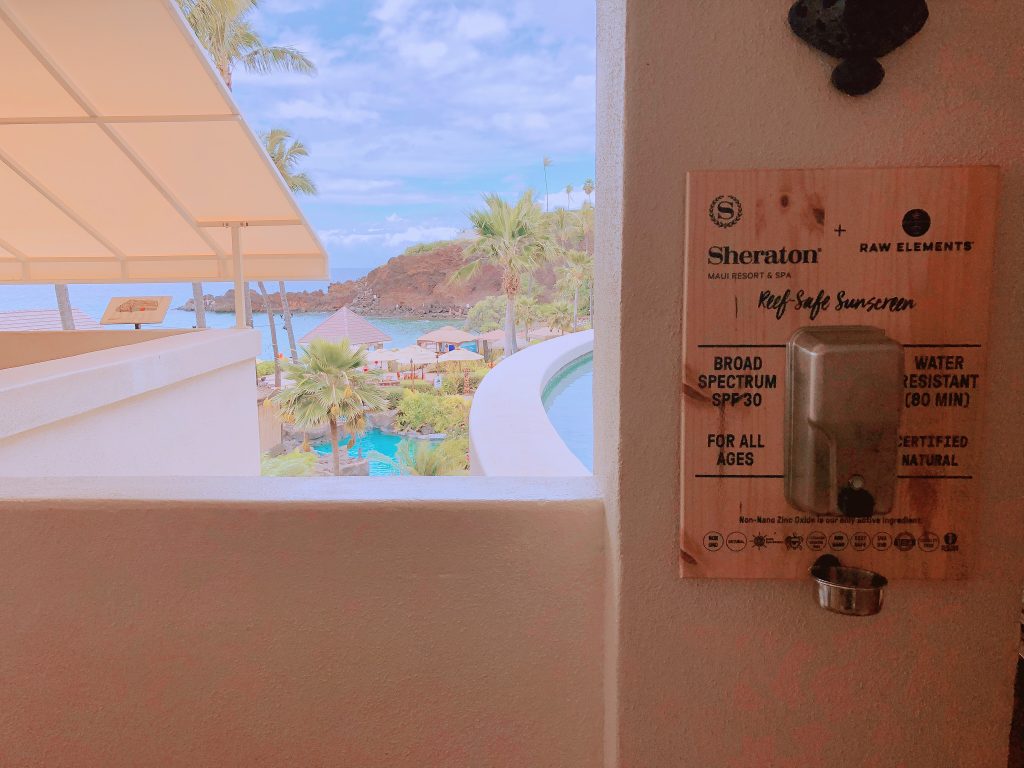Historic Sunscreen Ingredient Ban to Protect Hawai‘i’s Reefs Becomes Law

Reef-Safe Sunscreen Dispenser – Sheraton Maui.
Maui lawmakers, along with other key legislators, joined Governor David Ige on Tuesday as he signed Senate Bill 2571 into law.
The bill bans any sunscreen containing oxybenzone in Hawaiʻi to help preserve the state’s coral reefs and marine ecosystems.
Representative Chris Lee, chair of the House Energy and Environmental Protection Committee, said “We’ve lost more than half our coral reefs in the past 40 years.” He said any steps we can take in the protection of that precious resource for future generations in Hawaiʻi is critical.
West Maui Representative Angus McKelvey said the new law is especially important for closed bay systems like Honolua, where the coral reefs are under threat from constant exposure of sunscreen.
The bill, which bans the sale, offer of sale, or distribution of any sunscreen that contains these chemicals, includes an exemption for prescriptions issued by a licensed healthcare provider.
“We want to protect our reefs but also be able to protect the health of our people who love the outdoors but may have medical issues due to skin cancer,” said McKelvey, a skin cancer survivor himself and a member of the Energy and Environmental Protection Committee.
Stuart Coleman, Executive Director of the Surfrider Foundation agreed saying, “The point about reef protection and closed bays like Haunama Bay on O‘ahu and Honolua Bay is critical because there are so many people getting into the water every day just lathered up in sunscreen and this will help to protect the reefs in those very critical areas.”
While the measure takes effect immediately, the date for the full ban to be implemented is 2021 to allow for a transition period to get more oxybenzone free sunscreen on the market for consumers.
Proponents have advocated that the measure is even more pressing because of scientific studies that show oxybenzone or octinoxate degrade corals’ resiliency and ability to adjust to climate change factors, inhibit recruitment of new corals, and appear to increase the probability of endocrine disruption.










